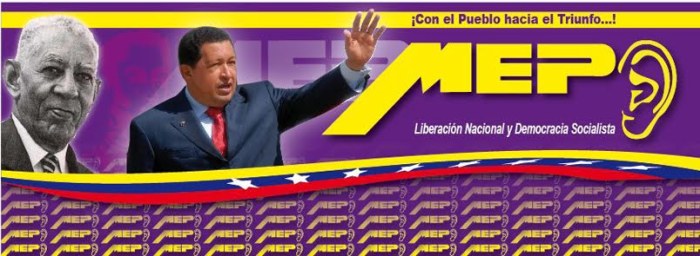MEPjacking


The People’s Electoral Movement (MEP) – the largely empty carcass of AD’s left-wing faction that broke away from the party in the 60s – recently held its internal national assembly to elect its main authorities.
In that context, Chairman Andrés Lusiano Lara and Secretary-General Wilmer Nolasco were ratified, along with the rest of its main board and other party internal bodies. The process took three months and was carried out with what is described as “total normalcy” – normalcy, that is, for a party that has long ago ceased to be relevant, but which holds non-negligible real estate on Venezuelan elections ballots, given its age.
The TSJ’s (Supreme Tribunal) Electoral Hall had other ideas, and they decided that “normalcy” wasn’t good enough.
It decided to throw the whole process out, and named a new national board for the MEP, headed by Gilberto Jiménez, National Coordinator of the “Mi Casa Bien Equipada” government program. Remarkably, the TSJ received the case, admitted it and made its decision in a single day. Los tiempos de Diosdado son… sorprendentes a veces.
So, the TSJ basically hijacked a political party.
Nolasco puts the blame on the governing party, the PSUV, and hints that the ruling came after a meeting with the government’s Elías Jaua, in which MEP leaders demanded a quota of three main deputies and ten substitutes, threatening to run a separate list of candidates if they were not satisfied.
I’m guessing the PSUV didn’t like the offer and made its move: the TSJ-appointed board will be now in charge of naming the MEP’s candidates for the 6-D election.
“This decision is an outlandish ruling and was taken by instructions of PSUV high-profile members, including (Anzoategui State) governor Aristóbulo Istúriz… This is a threat from the PSUV to all allied parties so they accept the candidacies they’re given…”
Earlier this year, Nolasco considered dropping out of the GPP (the chavista alliance) altogether, due to serious differences with Barinas State Governor and brother of the late comandante presidente, Adán Chávez.
This is a low point for the MEP, a small party born of AD’s internal divisions.
Founded by 1967 by the late, great Luis Beltrán Prieto Figueroa (who got almost 20% of the vote in the 1968 presidential election), it never repeated that kind of support. In the eighties, they supported the presidential tickets of José Vicente Rangel (1983) and infamous psychiatrist Edmundo Chrinos (1988), candidates that did not bring any improvements in its vote tally.
Finally, the MEP came into power in the nineties by joining two coalitions: Rafael Caldera’s “chiripero” in 1993, and Hugo Chavez’s Polo Patriotico in 1998. In 2008, the party kicked out its then-leader Eustoquio Contreras, who two years earlier wanted to merge the MEP with the PSUV (and later changed his mind). He personally blamed Nolasco.
Today, Contreras leads the Vanguardia Bolivariana Republicana (a position he achieved with a little help from the CNE as part of another dissident chavista party knee-capping).
The PSUV’s leadership is sending a warning to its allies: bájale dos a las expectativas, or face the consequences.
Caracas Chronicles is 100% reader-supported.
We’ve been able to hang on for 22 years in one of the craziest media landscapes in the world. We’ve seen different media outlets in Venezuela (and abroad) closing shop, something we’re looking to avoid at all costs. Your collaboration goes a long way in helping us weather the storm.
Donate





